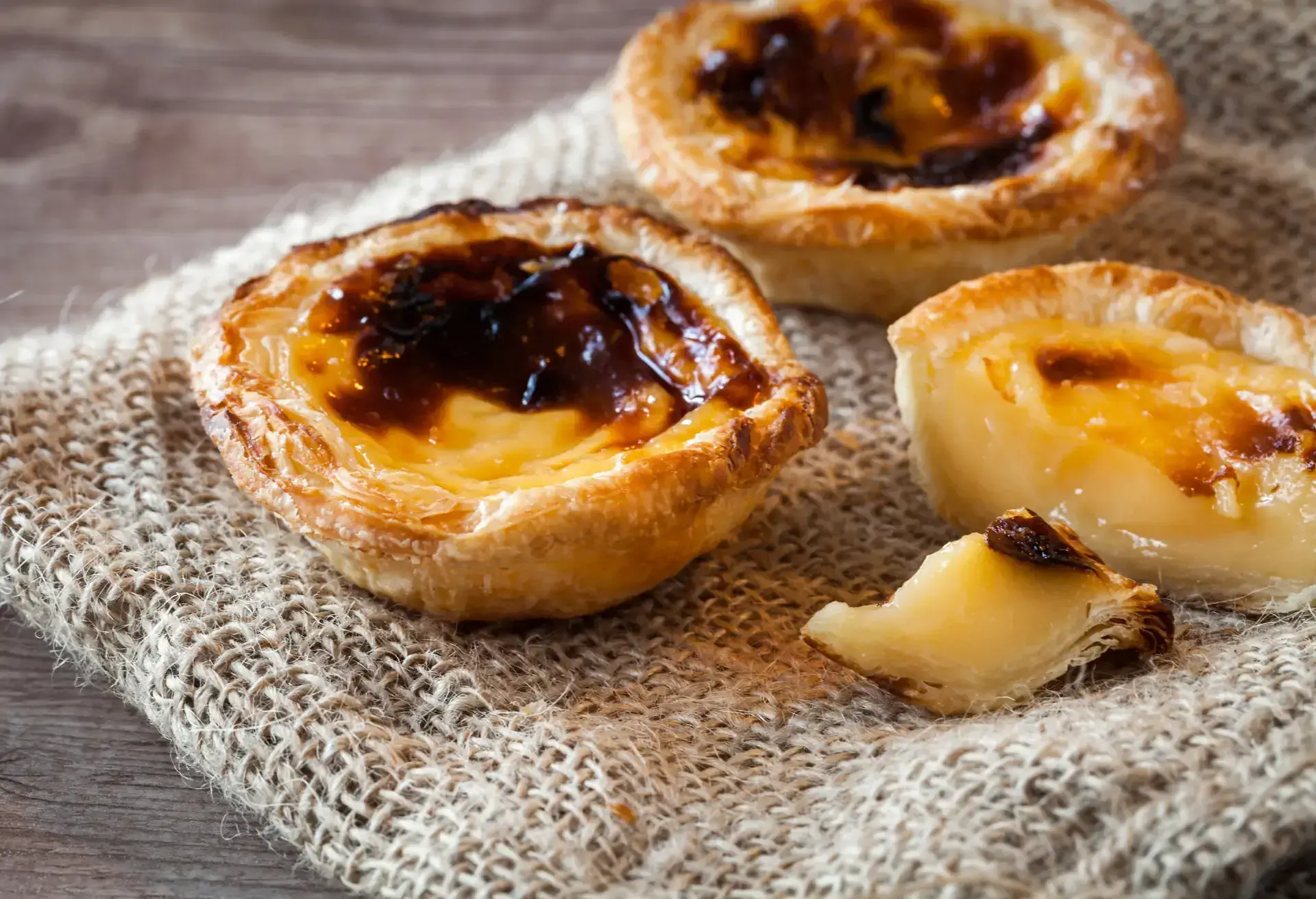Discover the hidden treasures of Portuguese cuisine. From grilled sardines to creamy pastries, Portuguese food offers a perfect blend of sea and land. In this guide, we present authentic Portuguese dishes that are guaranteed to seduce your taste buds and inspire your next culinary journey.
Portuguese Food – A Taste Journey for All Senses
Portuguese food is an exciting mix of simple ingredients transformed into extraordinary culinary experiences.
With influences from both the Mediterranean and the Atlantic, as well as spices from the country’s colonial past, Portuguese cuisine offers a multifaceted palette of flavours.
From the northern mountain regions to the sunny beaches of the Algarve, each region contributes its unique character to the country’s rich culinary heritage.
Here are 20 of our favourite dishes.
1. . Pastéis de bacalhau
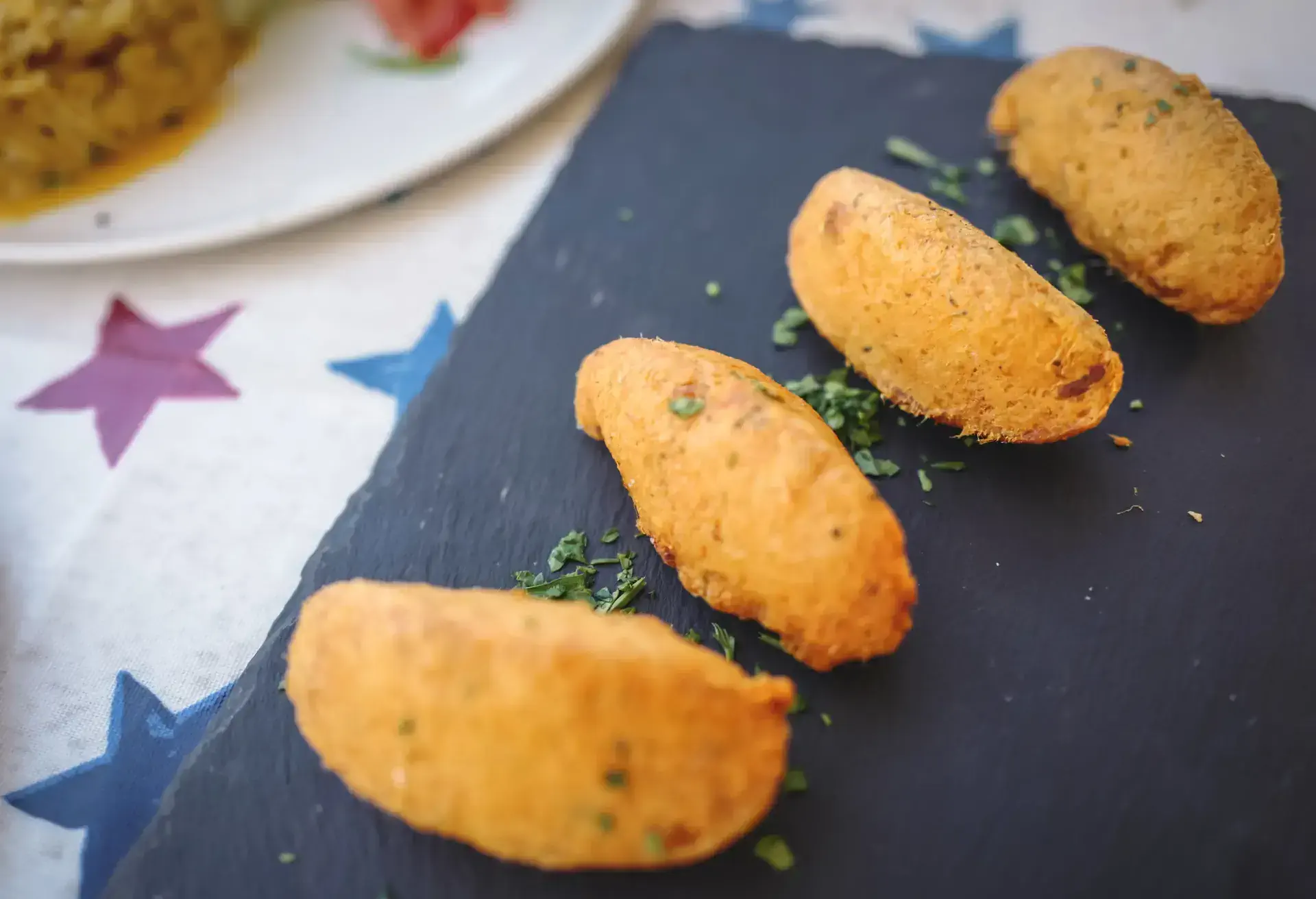
A popular Portuguese saying goes that there are more cod recipes than days in a year.
Cod, or bacalhau, is a staple in Portuguese cuisine and can be shredded and used in these delicious fishcakes. They are golden and crispy on the outside but soft on the inside.
They can be served as an appetiser or with rice or salad.
2. Bacalhau à Brás
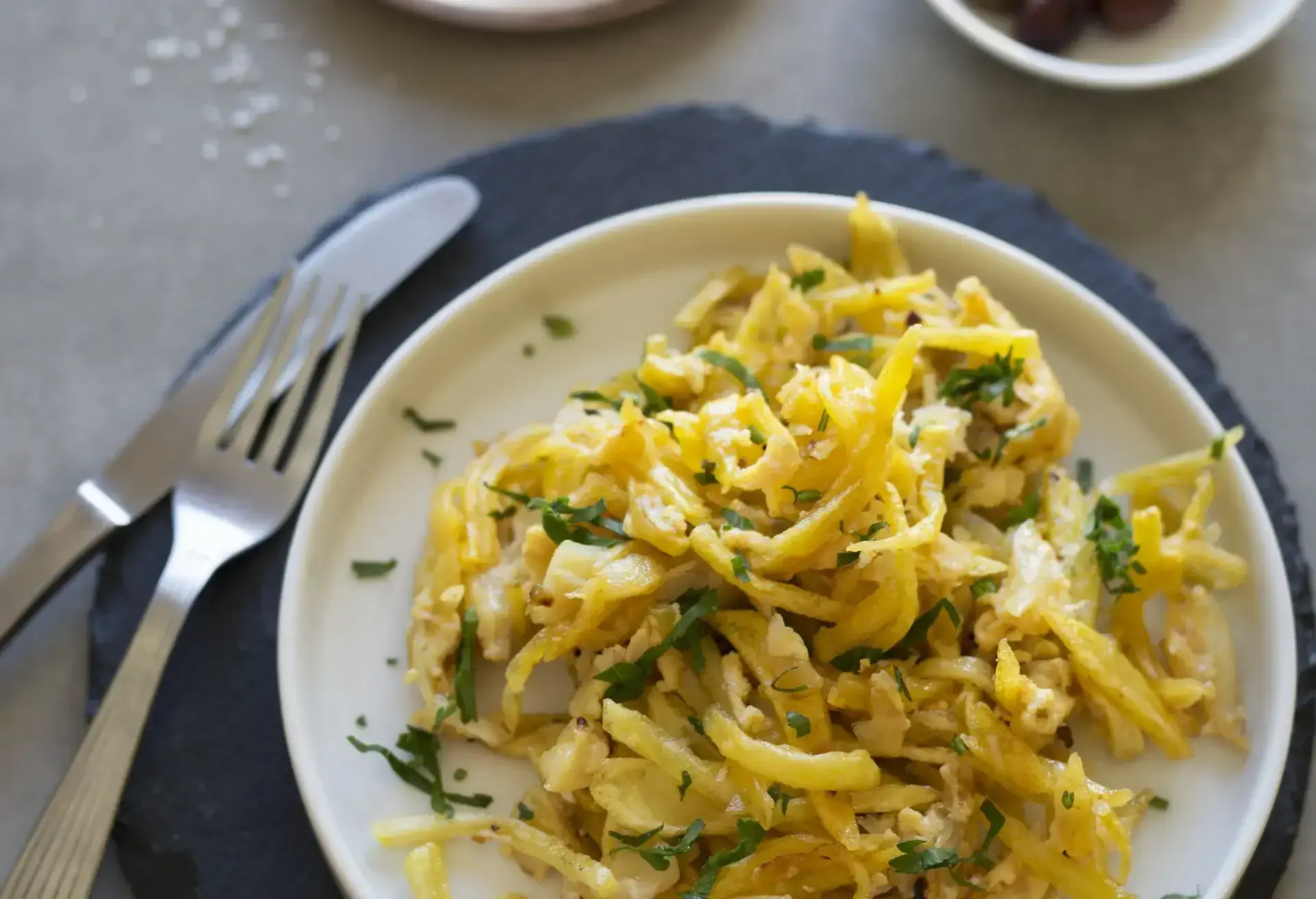
The creation of cod-based dishes in Portuguese cuisine holds much creativity.
For example, if you sauté shredded cod with onions and matchstick-cut fried potatoes and then mix it with olives and parsley, you get a typical dish called bacalhau à brás.
It is tasty and easy to make, which makes its popularity easy to understand.
3. Alheira de Mirandela
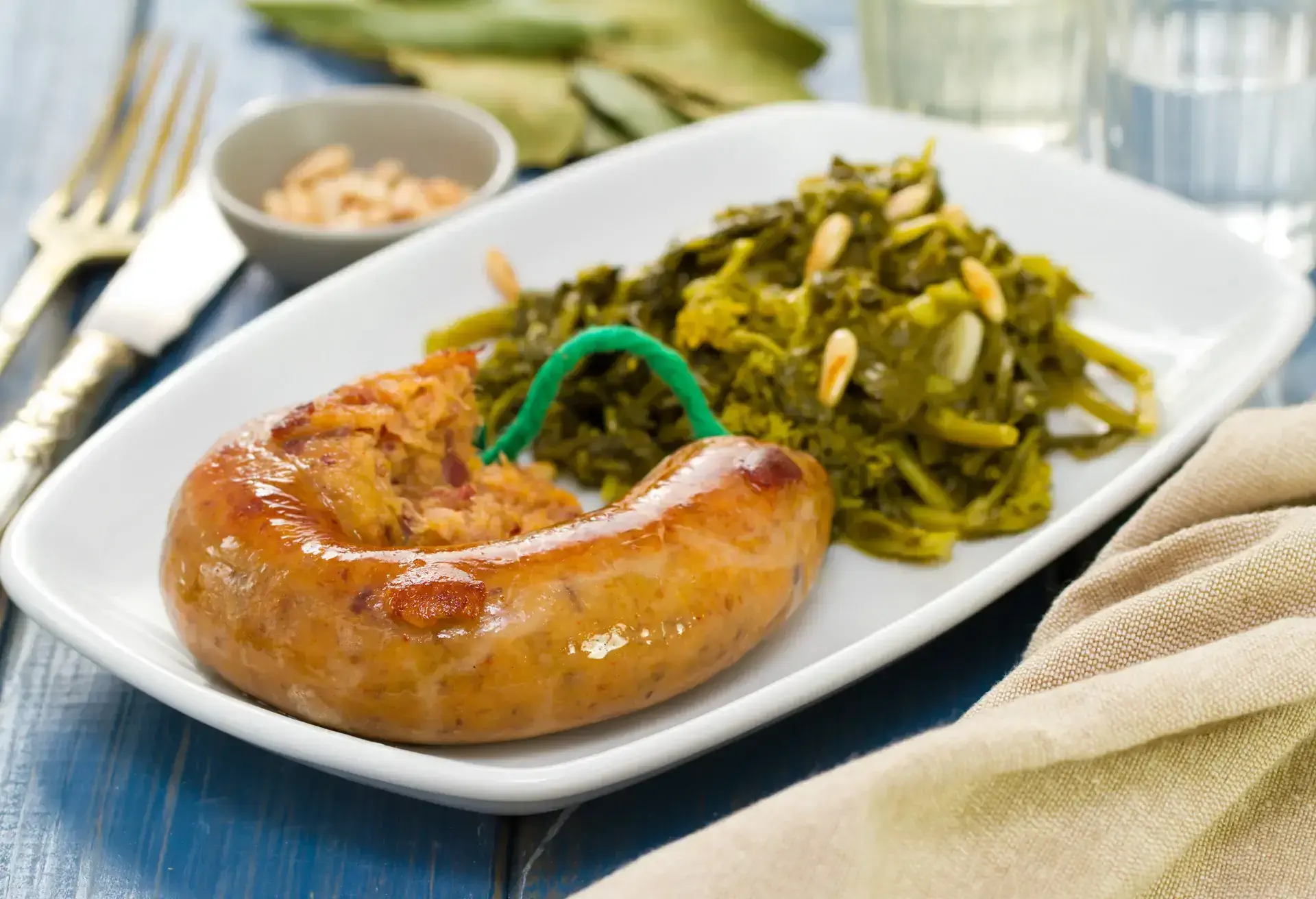
A true classic among Portugal’s smoked sausages and chouriços (a type of sausage, usually made of pork with natural casing).
Alheira was created by Jews as a way to deceive the Portuguese Inquisition into believing they were Christians.
Today, this pork-free chouriço is a classic dish often served with a fried egg and fries.
4. Francesinha
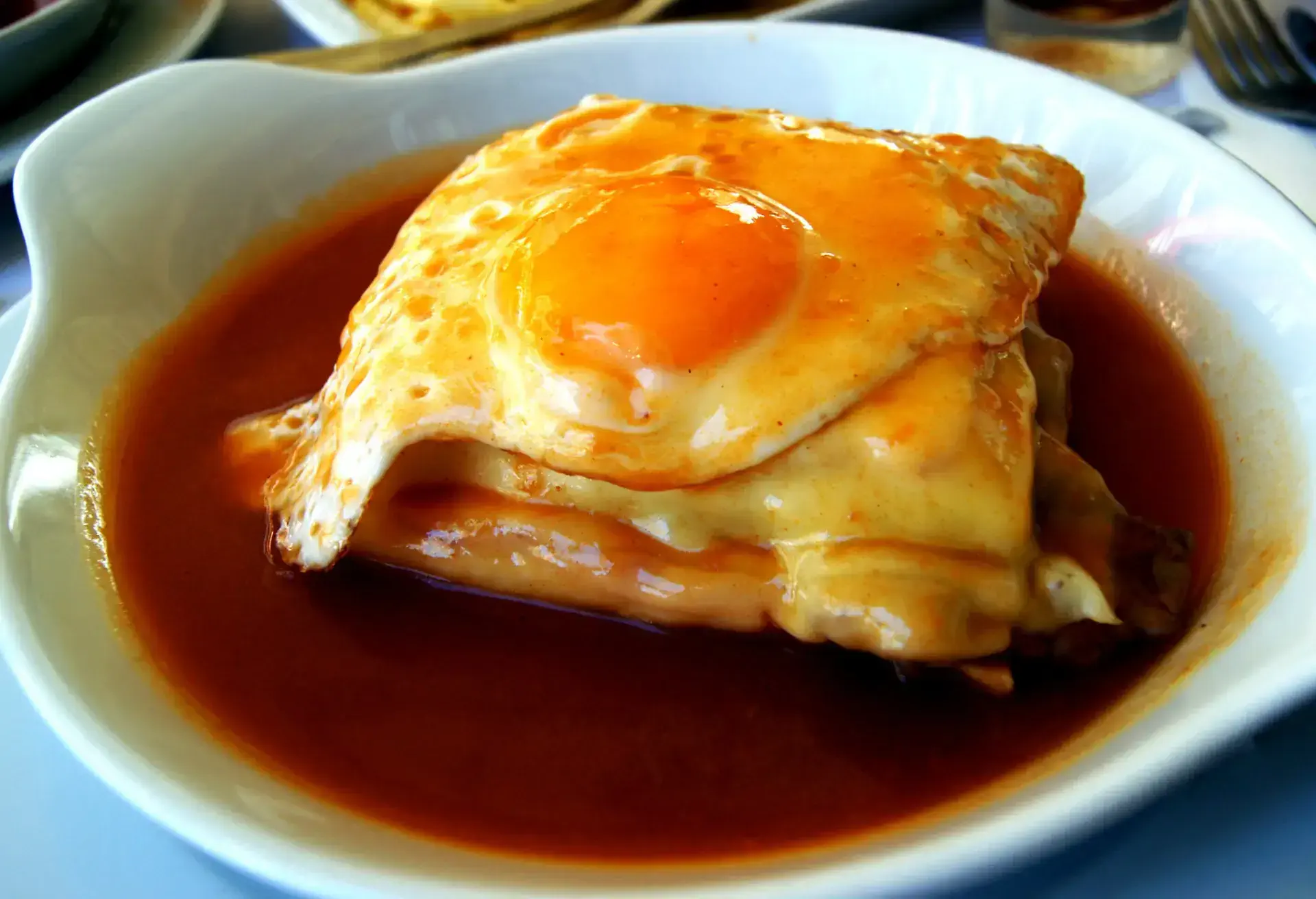
Folks, this is how you reinvent the ham and cheese sandwich: triple cheese.
Layer upon layer of smoked meat, topped with plenty of sauce.
This recipe from Porto resembles a croque monsieur gone mad – which also explains its name (meaning little French lady) and its decadent taste.
5. Cozido à portuguesa
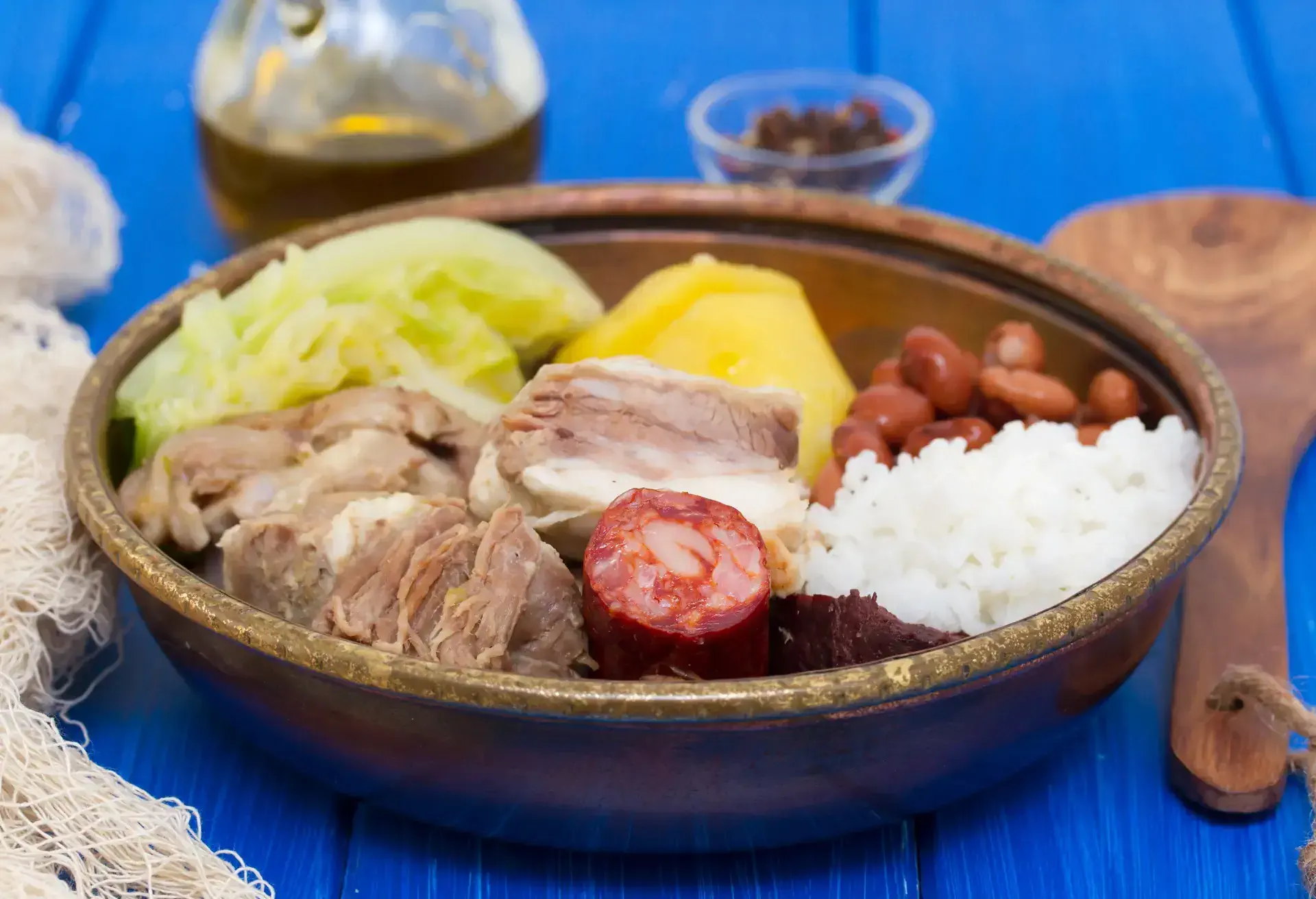
A traditional stew for meat lovers, this dish includes chicken, beef, pork, and several pork and blood sausages.
This hearty meaty extravaganza also includes boiled carrots, beans, and cabbage.
The water used to cook all these goodies becomes a nutritious broth that you can either drink or use to cook rice.
6. Caldeirada de peixe
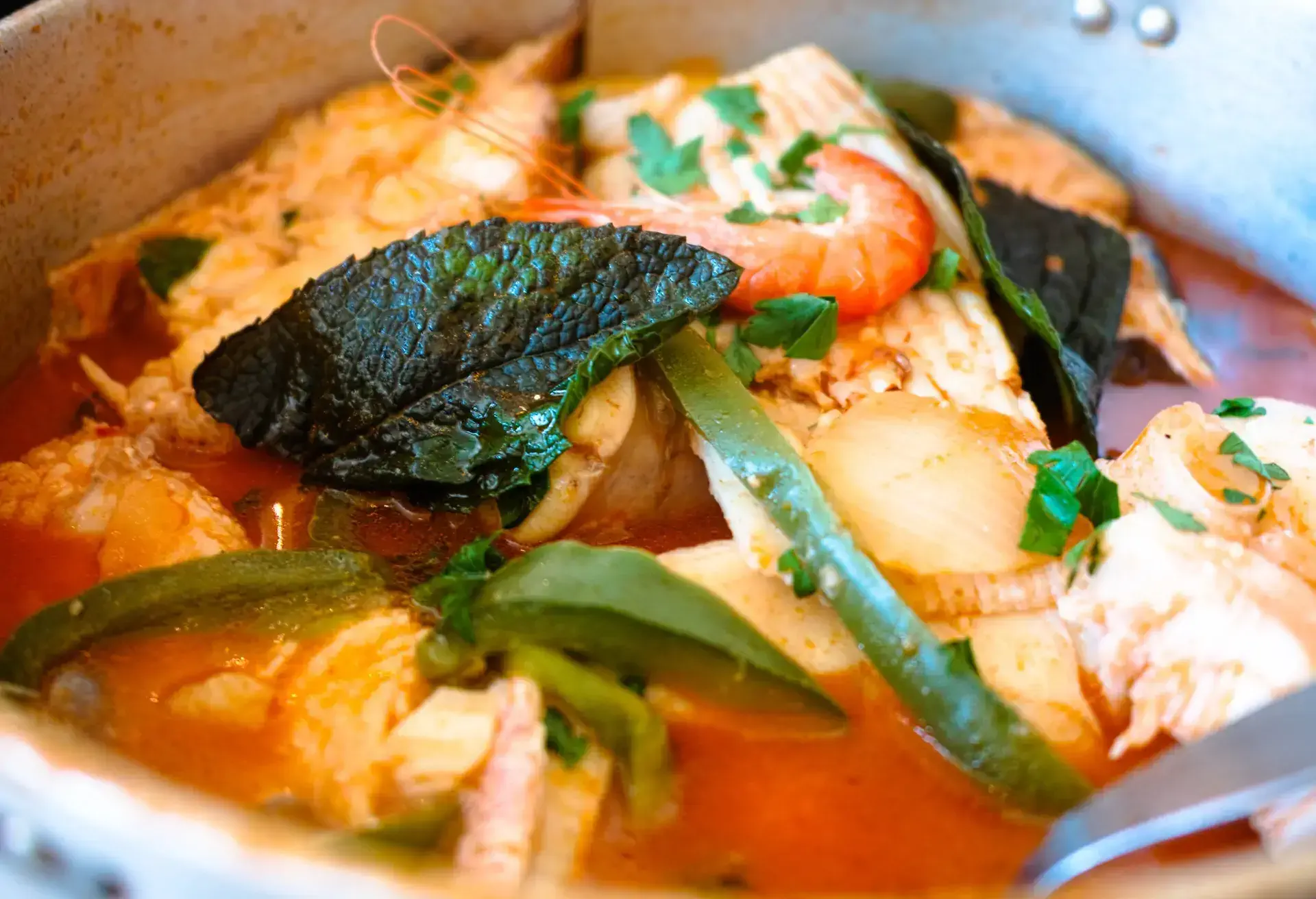
There is widespread and abundant use of fish and seafood in Portuguese food.
Put everything you can get your hands on in a pot, and you get caldeirada, a fish stew made with various fish and seafood, covered with tomatoes and herbs.
It is a thick, rich and nutritious end to a great day at the beach.
7. Amêijoas à Bulhão Pato
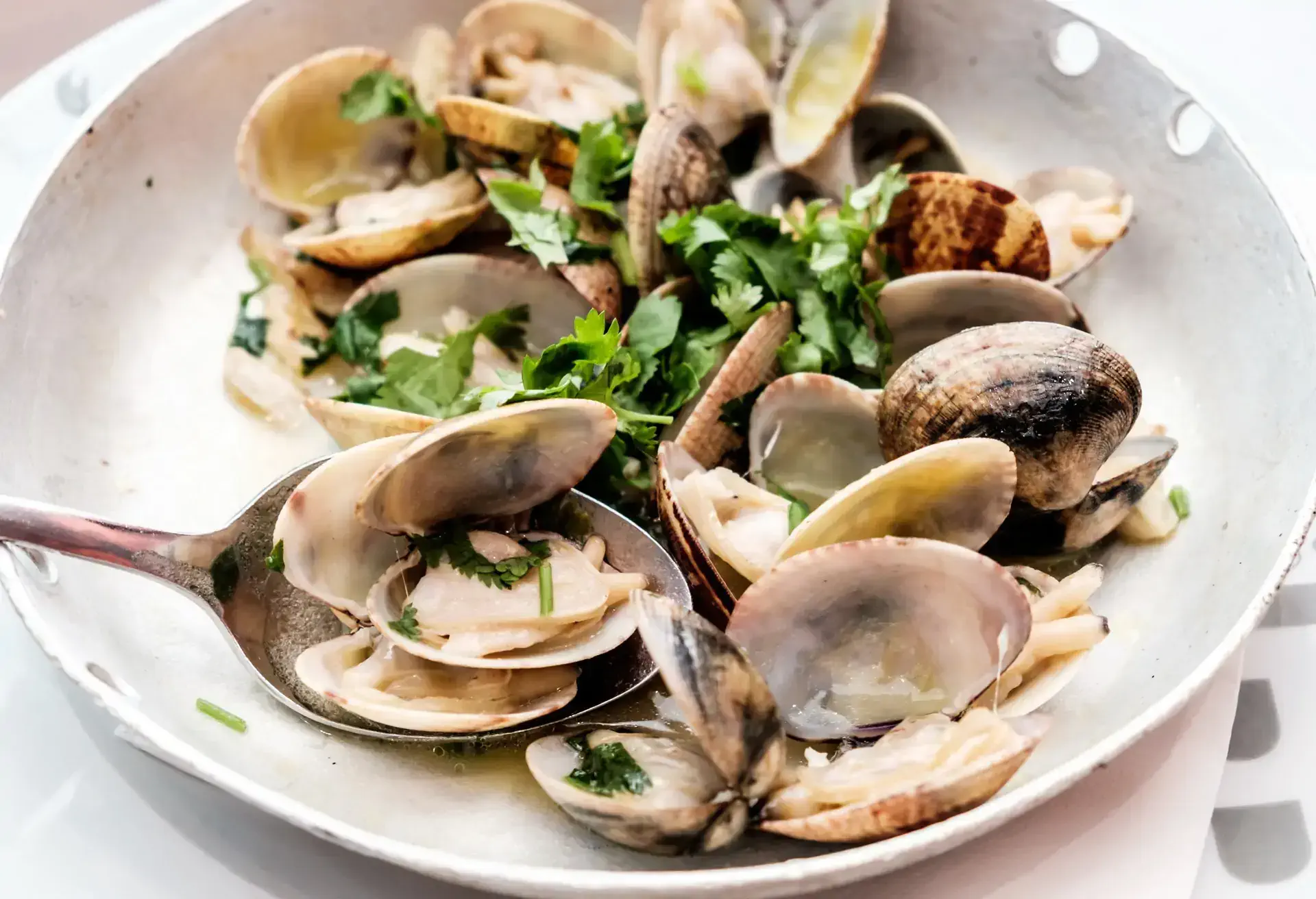
Do yourself a favour: grab a cold beer, bask in the afternoon sun, and order a portion of this delicious delicacy.
This mussel-based dish is not just about the chewy taste inside the shell, but also about dipping pieces of bread in the delightful sauce made of olive oil, coriander, garlic, and often white wine.
Perfect as a simple snack with friends.
8. Queijo Serra da Estrela
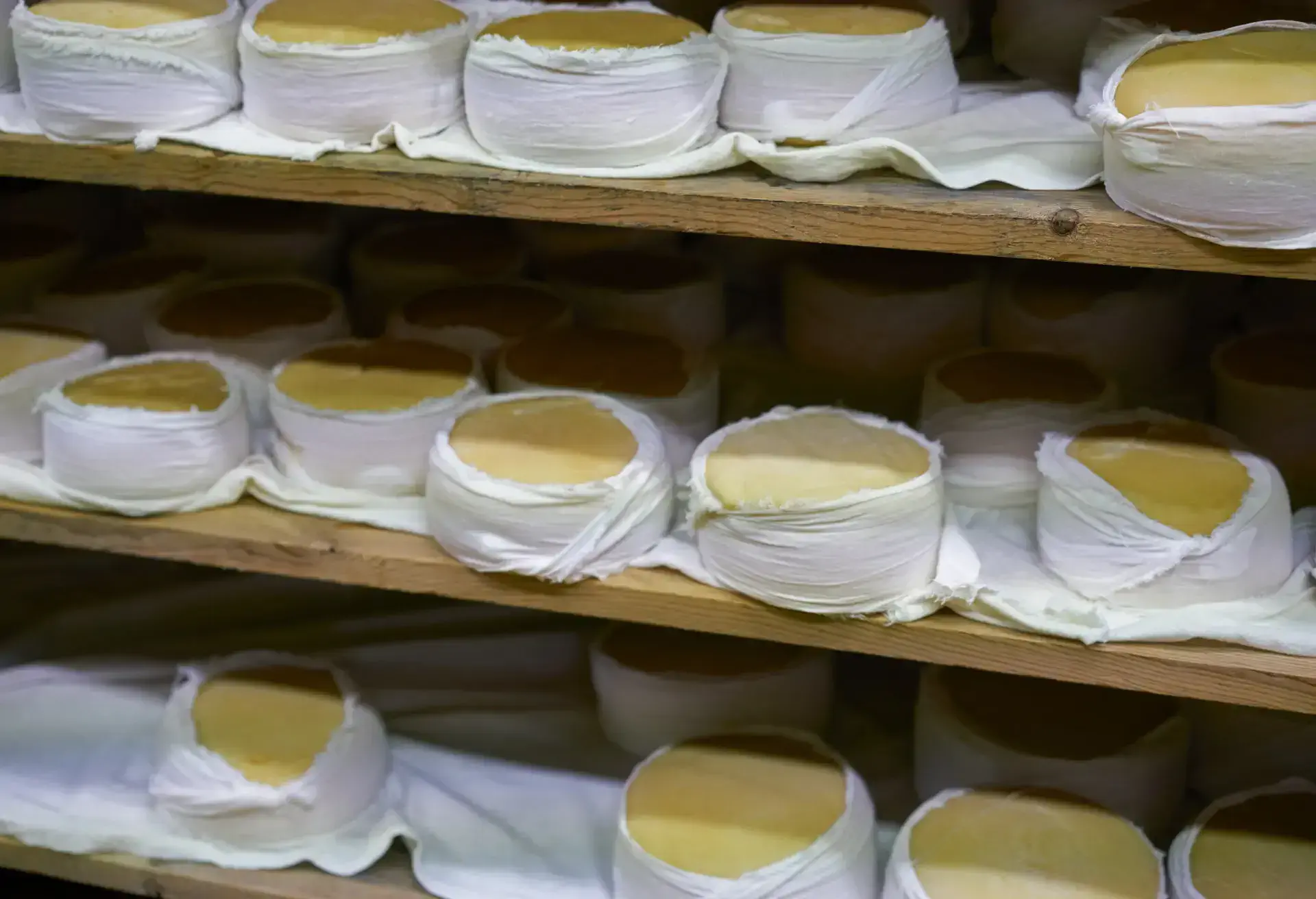
Serra da Estrela cheese is made from sheep’s milk and has a sharp, thin, and gooey texture.
But for some inexplicable reason, it is almost unknown outside Portugal.
The cheese ranges from soft and buttery to harder with a more intense flavour, much to the delight of cheese lovers.
9. Caldo Verde
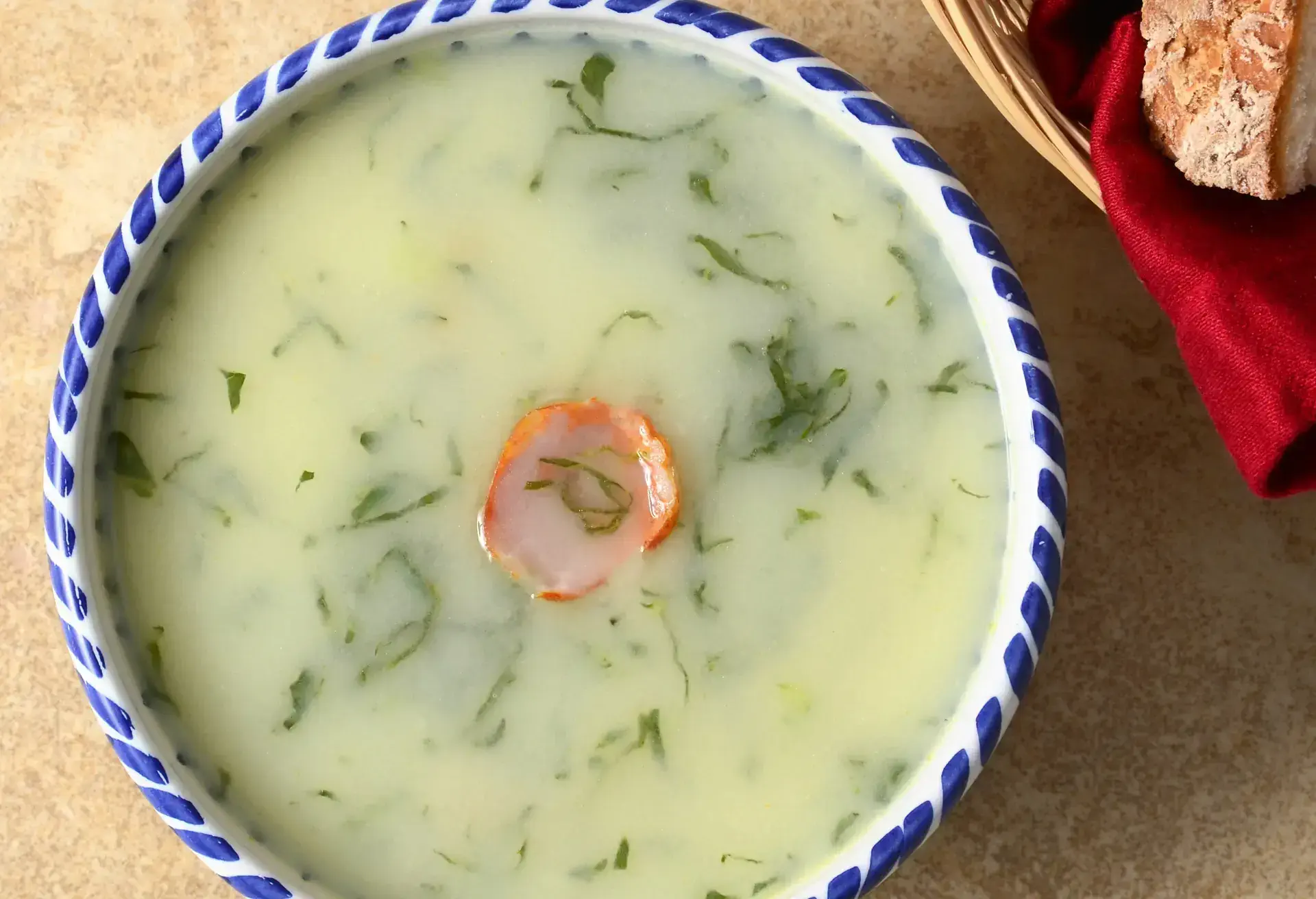
With frequent appearances at festivals, such as the traditional Portuguese festivities in honour of each city’s patron saint, Caldo Verde is a soup made mainly of potatoes, onions, kale, and slices of pork sausage (chouriço).
It is a perfect comfort food and can be served as either a late-night meal or just before a main course.
10. Sardinhas assadas
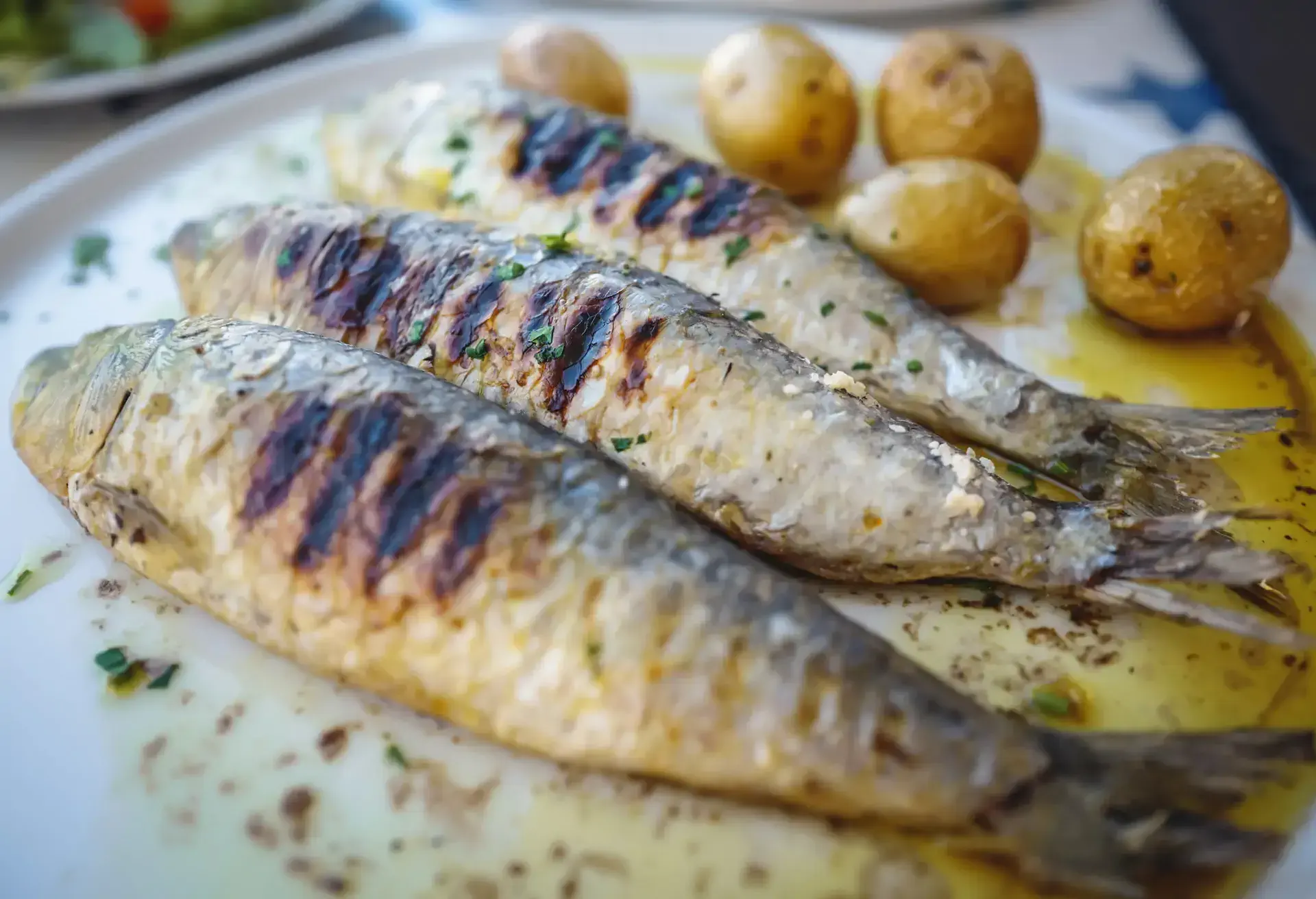
Combine the freshness of the sea with the smokiness of the grill – these charcoal-grilled sardines are one of the most typical meals in Lisbon.
You can eat them in restaurants, but also out on the street during the festivities for Santo António in June.
Whether served on top of a piece of cornbread, with roasted pepper salad, or boiled vegetables, make sure to drench them in plenty of olive oil to get the full experience!
11. Bolo do caco
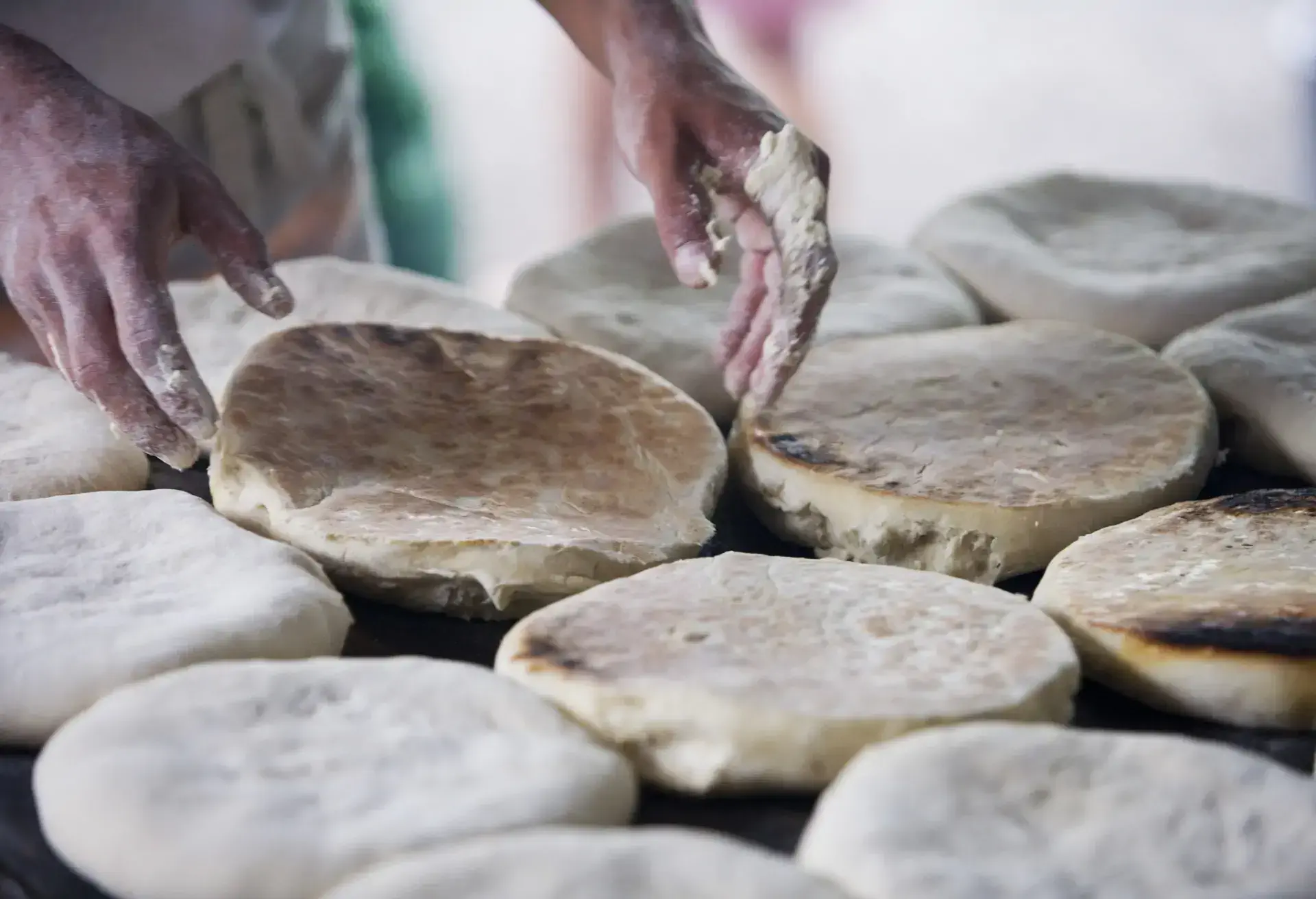
Garlic bread with a traditional Madeira island twist. This flat, round bread is cooked on basalt stone and is guaranteed to melt your insides when served warm and crispy.
Some burger restaurants have started using this bread to stand out – a good idea, because once you’ve tried it, you’ll wish you had thought of it first.
12. Arroz de Pato
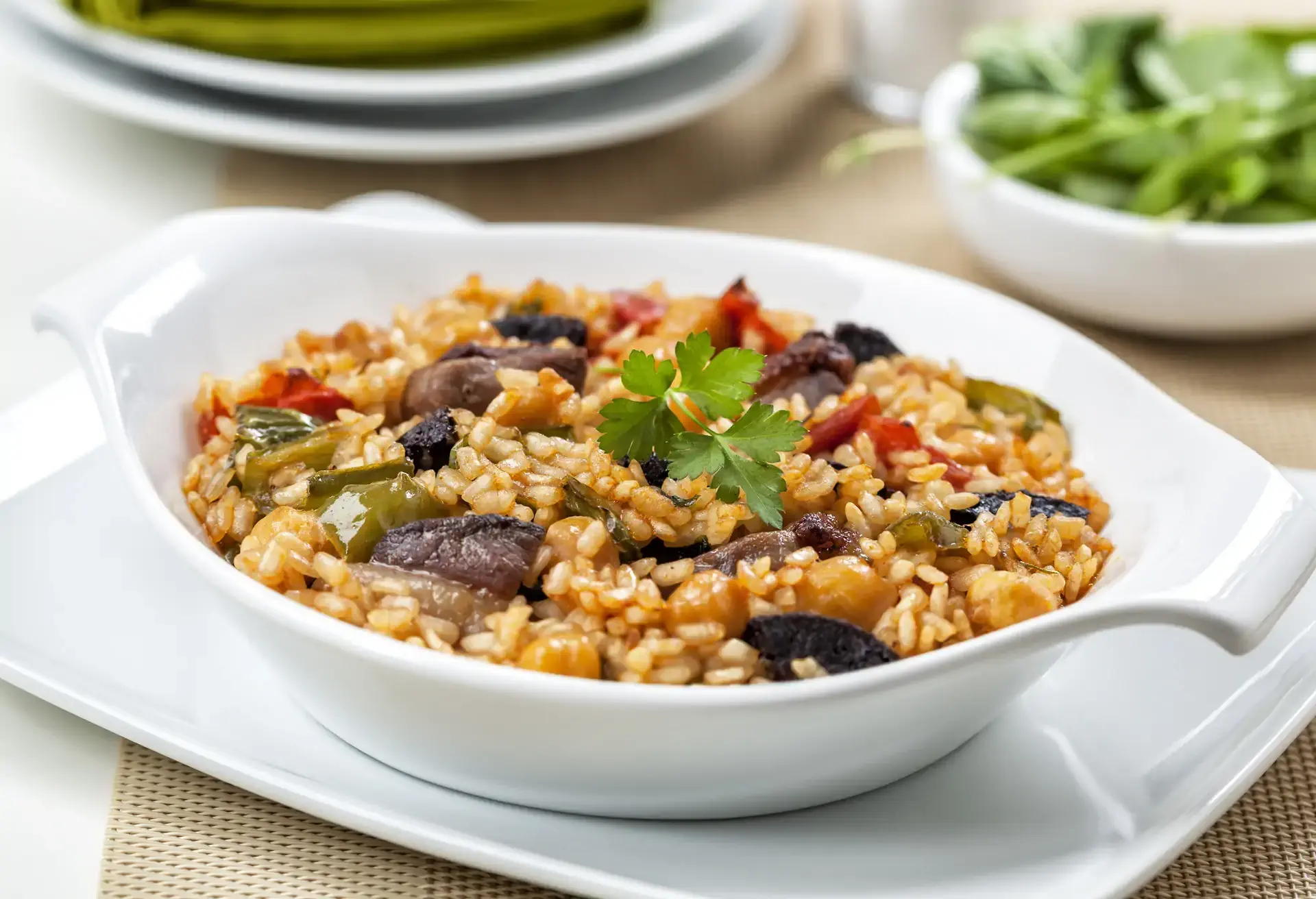
Nothing less than a duck risotto with a crispy surface, adorned with slices of pork chouriços.
Before being placed in the oven, it is cooked to perfection, making it soft and delicious when it reaches your mouth.
With a glass of Portuguese red wine, it is a guaranteed out-of-body experience.
13. Pastel de Belém
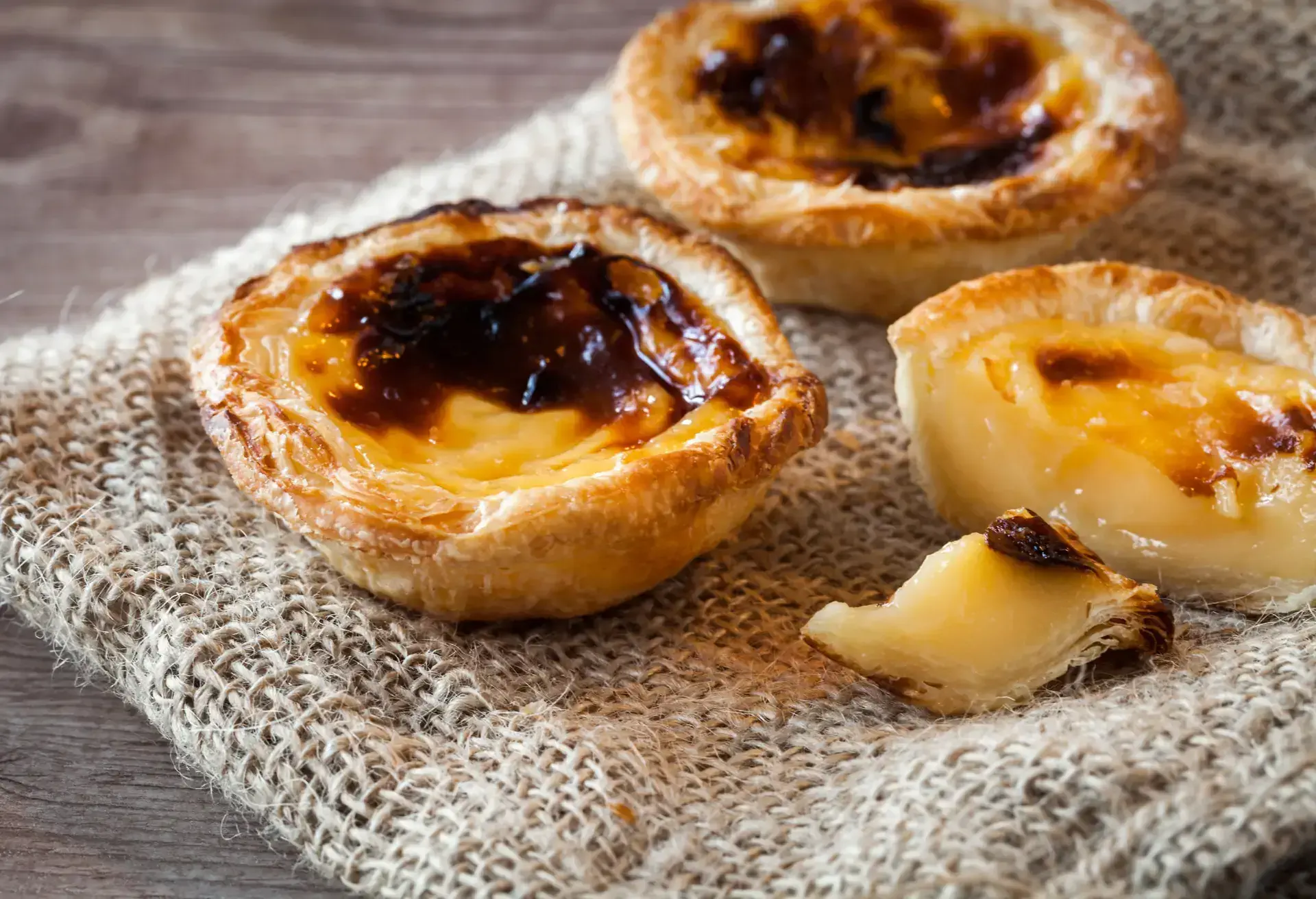
The Pastel de Belém recipe was originally created by Catholic nuns and is sold in a shop near the Mosteiro dos Jerónimos in Lisbon.
There are lively discussions about whether it differs from the more well-known pastel de nata – some say there is no difference at all, just another name because it is sold in Belém, while others believe it is completely different.
But trust us, it is different. It IS different! No, but seriously: you should really try one yourself and solve this Portuguese food issue once and for all.
14. Torta de Azeitão
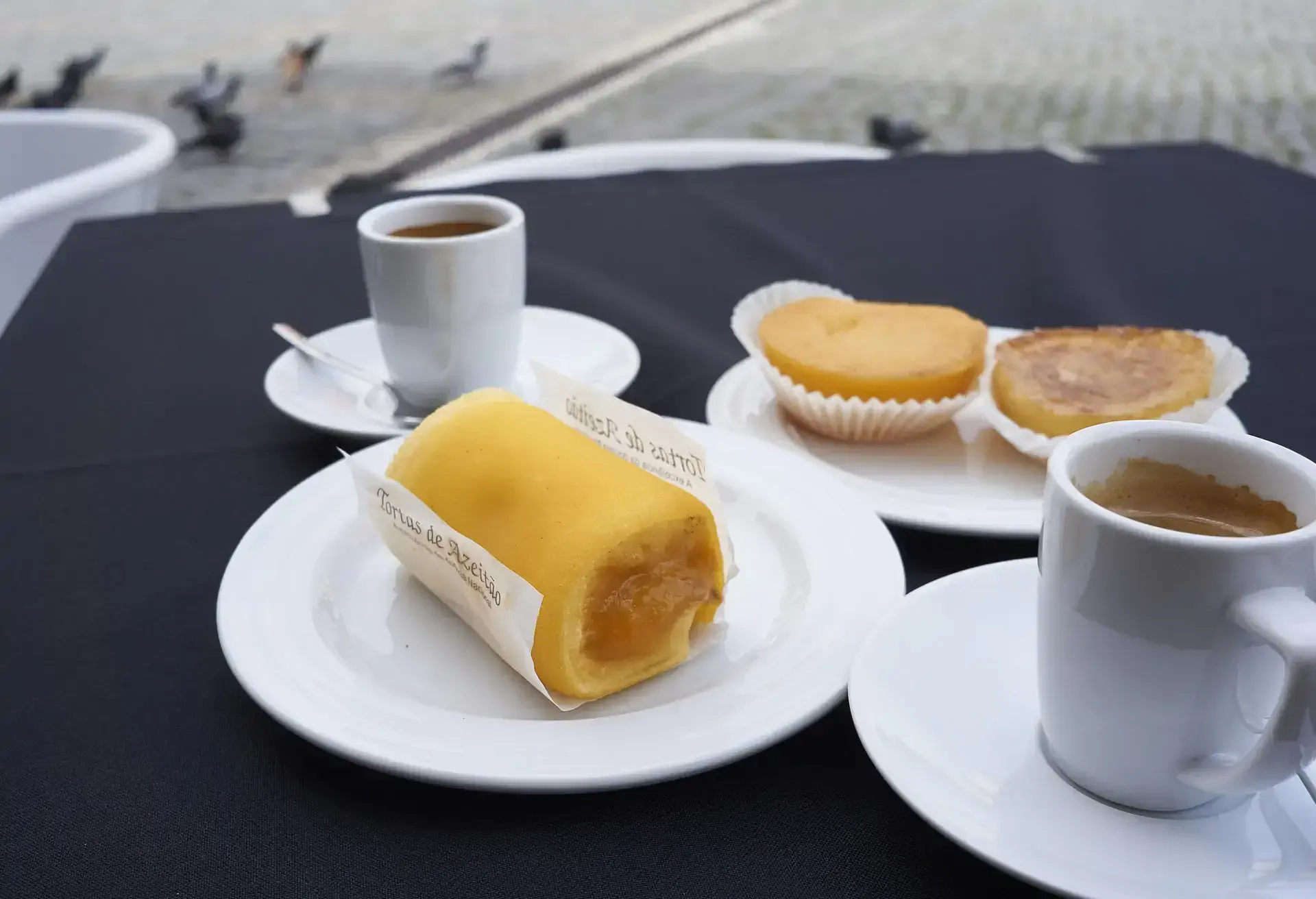
In Portuguese cuisine, egg-based desserts are quite common with several regional variations.
A well-known example is torta de Azeitão, a soft, spongy cake spread with sweet egg yolk. Then it is rolled up to perfection.
These tortas are a delicacy for those with a sweet tooth and a must if you find yourself in Azeitão, south of Lisbon – perhaps on a Portuguese road trip?
15. Ovos Moles d’Aveiro
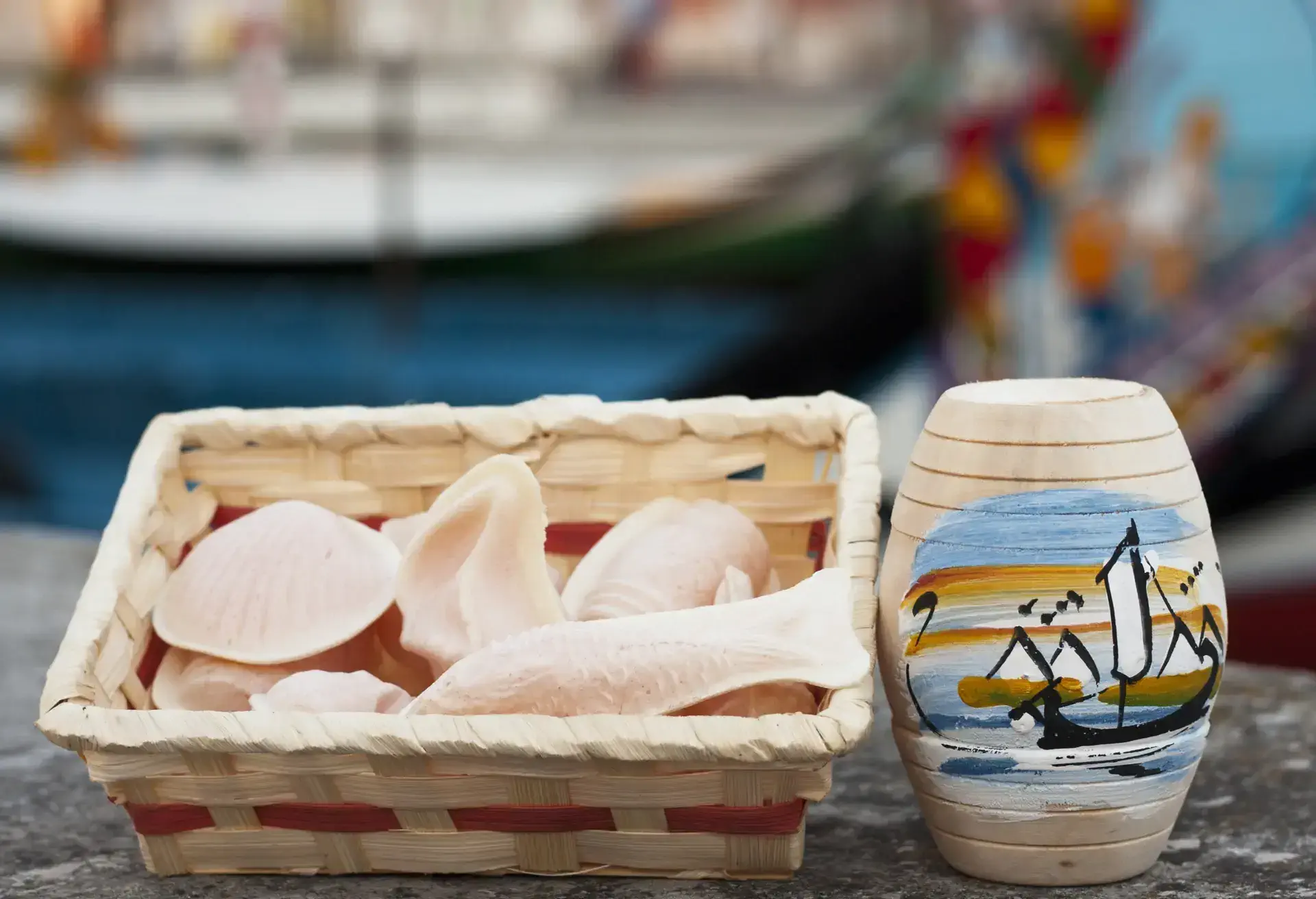
If you feel something is missing in your life, you must surely try ovos moles: sweet egg yolk paste wrapped in paper-thin wafer in the shape of seashells.
Although it won’t solve your problems, it will certainly brighten your day.
Something even the notorious 19th-century writer Eça de Queiroz couldn’t deny as he had a reference to this delicacy in his novel The Maias, something the city of Aveiro (where the recipe comes from) is quite proud of – with good reason.
16. Pão de ló
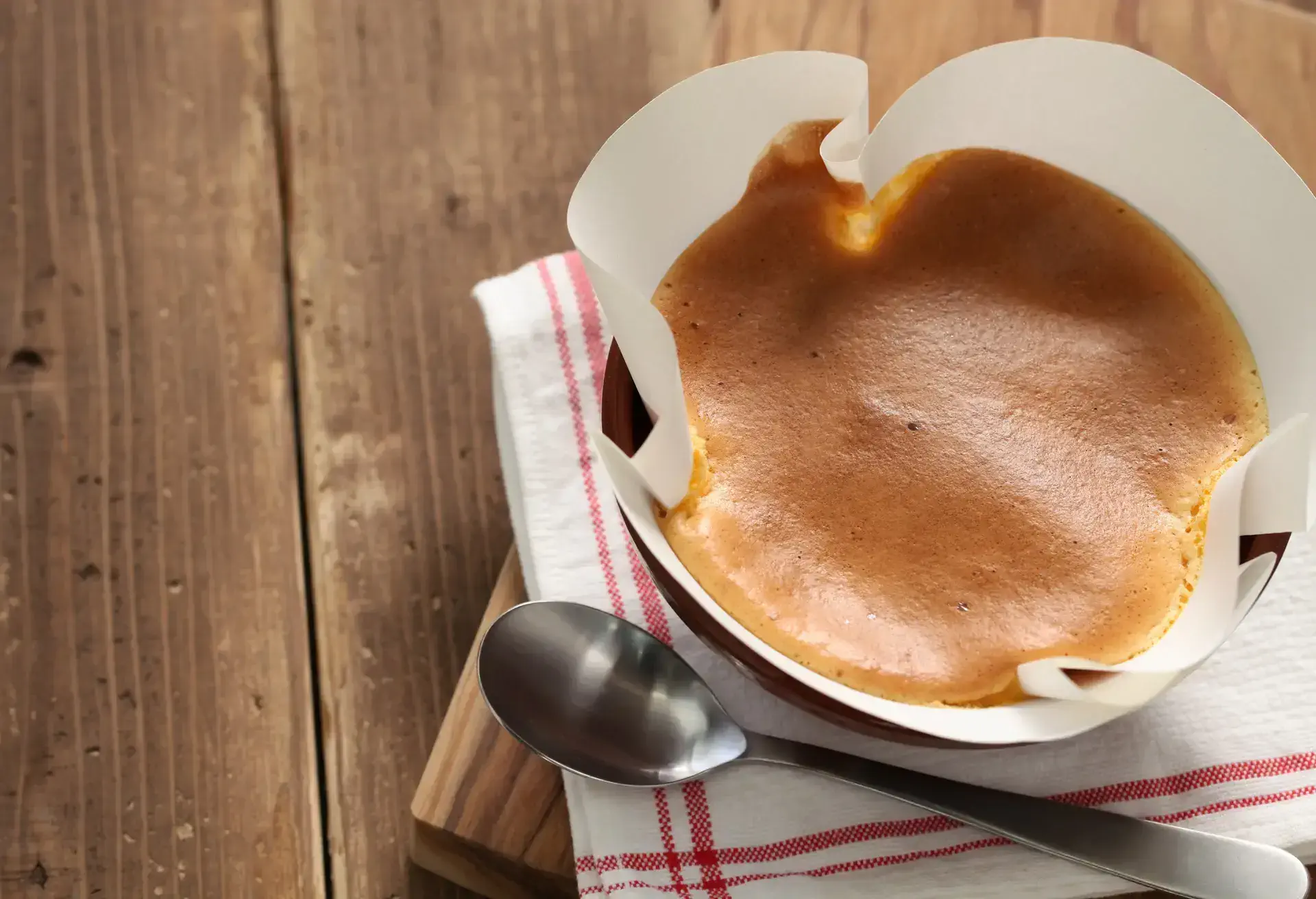
The actual Portuguese sponge cake is a popular dessert during Christmas and Easter and is often sold in bakeries, wrapped in stiff white paper.
Soft, simple, and fluffy, pão de ló can be served with a scoop of ice cream or eaten just as it is.
17. Polvo à Lagareiro
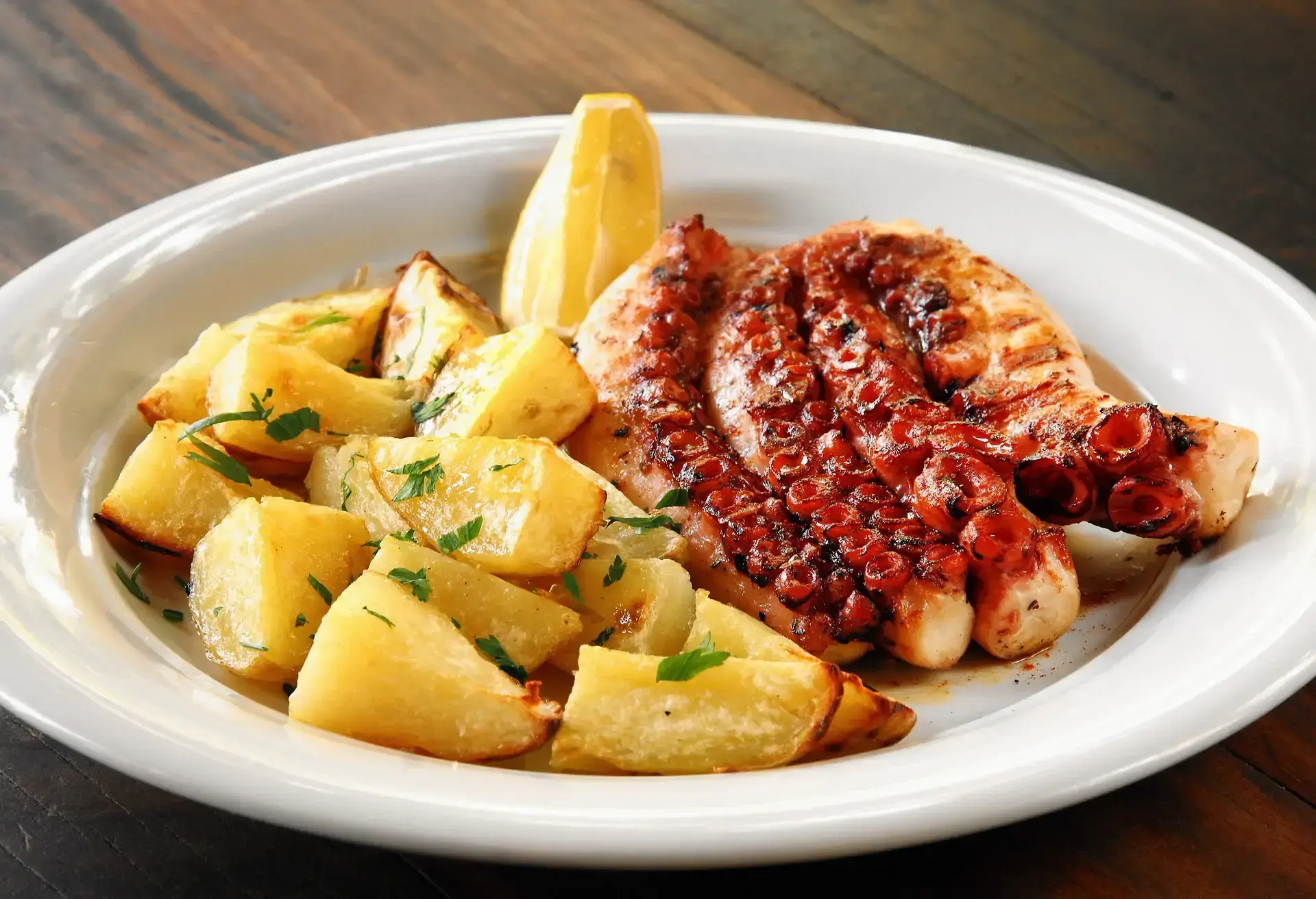
How could we not include octopus dishes in a list of Portuguese delicacies? I mean, how?
Octopus (or polvo) is so special that it is eaten on festive occasions like Christmas Eve dinner. It is also usually served as an appetizer at most fish and seafood restaurants, often cold and with with onions, olive oil, and parsley.
Polvo à Lagareiro is roasted octopus, drenched in olive oil, and served with baked potatoes.
18. Arroz doce
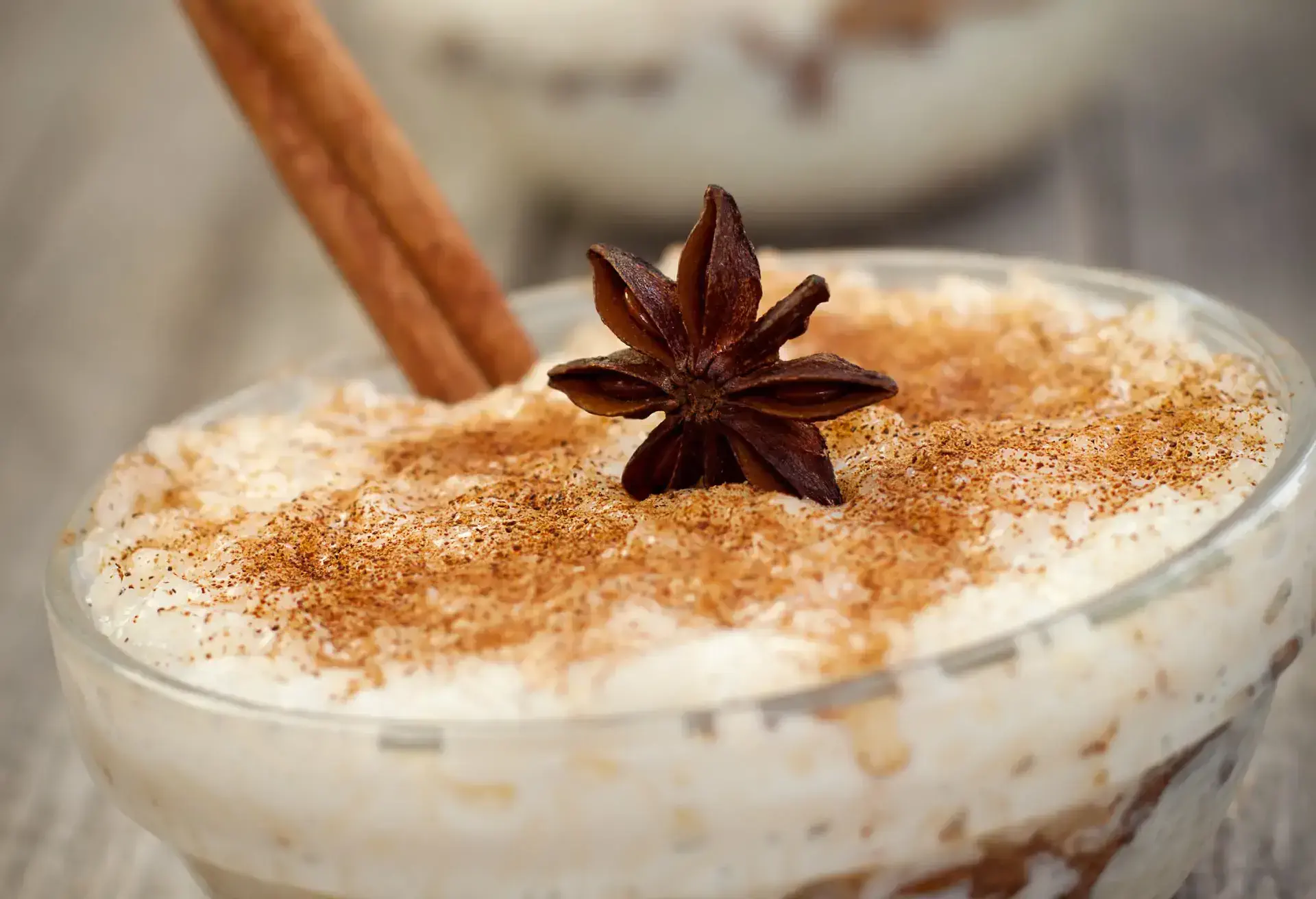
If there is a dessert your Portuguese grandmother would lovingly make for you, it is arroz doce: a rice pudding cooked with lemon with cinnamon sprinkled on top.
It has that spicy warm taste that reminds you of Christmas, birthday parties, and home. This cosy Portuguese treat is comfort served with a spoon.
19. Queijadas de Sintra
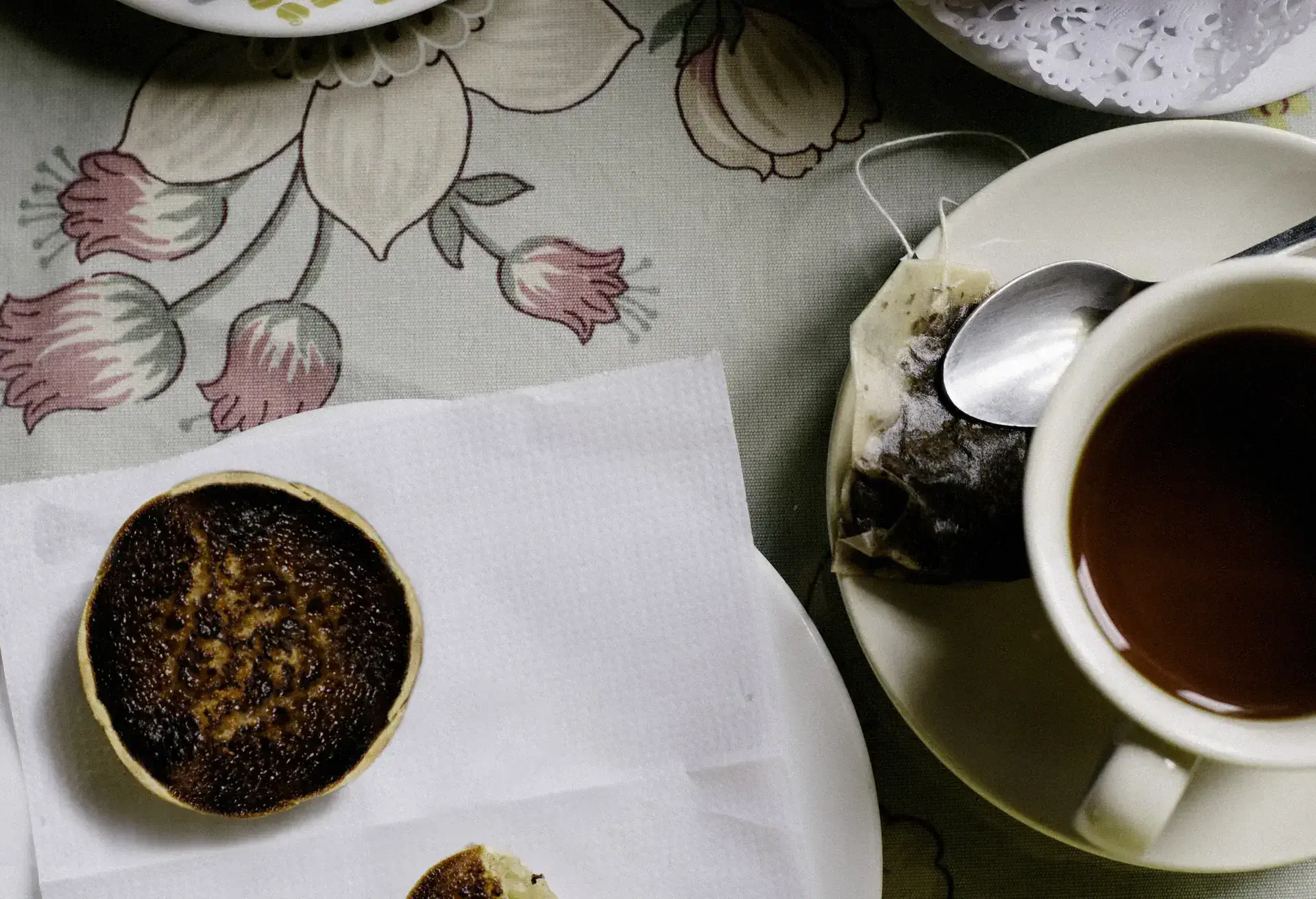
These egg pastries are made from fresh cheese. It is a staple from the wonderful town of Sintra, only a 20-minute drive from central Lisbon.
If you visit the castle or just take a walk through the forest, don’t forget to stop by the bakery and pick up a batch of queijadas. Preferably sprinkled with cinnamon to make it even better.
20. Salame de chocolate
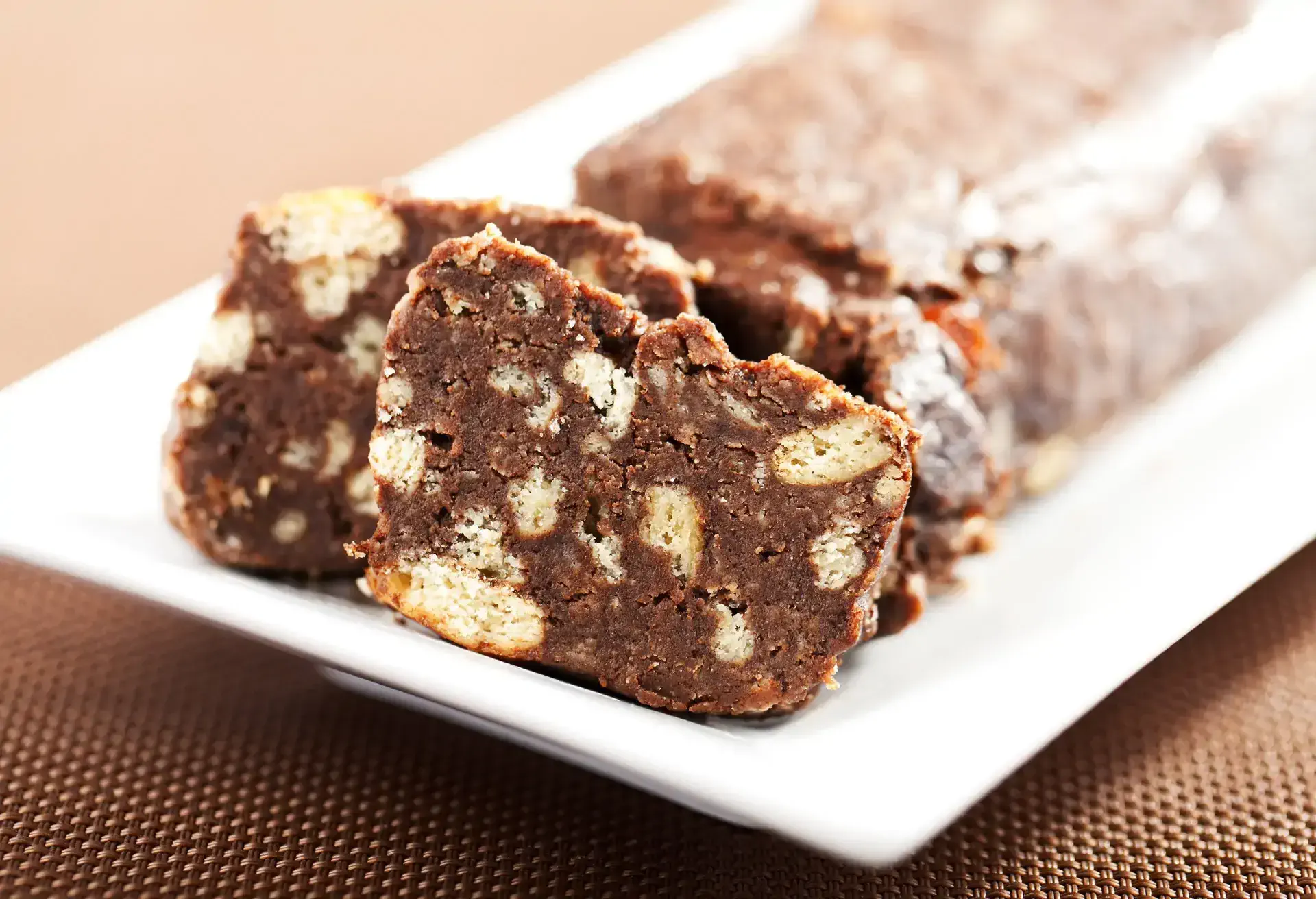
Literally a “chocolate salami,” this sausage-shaped sweet is easy to make and is also sold in packages in most Portuguese supermarkets.
Several countries in Europe claim to be the origin of this delicacy, but the only indisputable fact is that the person who decided to mix chocolate powder, butter, eggs, and broken cookies was a woman (or man) with vision.

